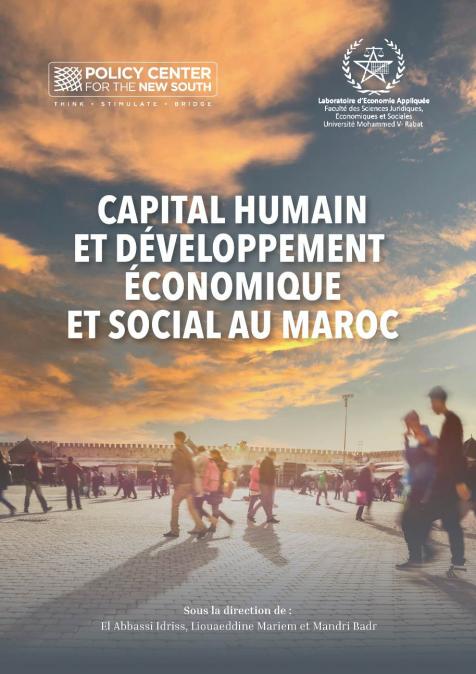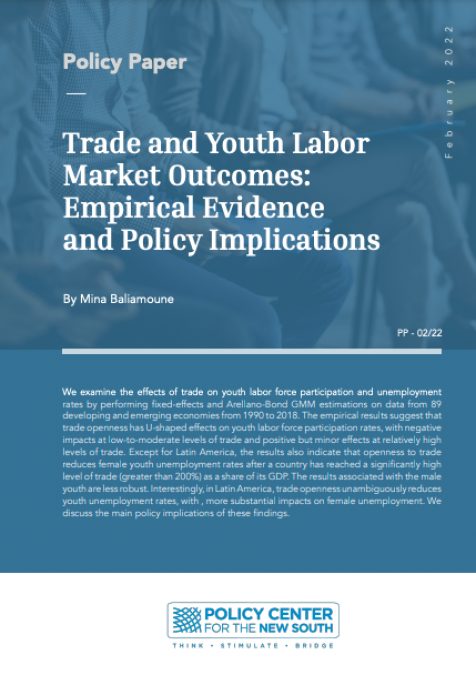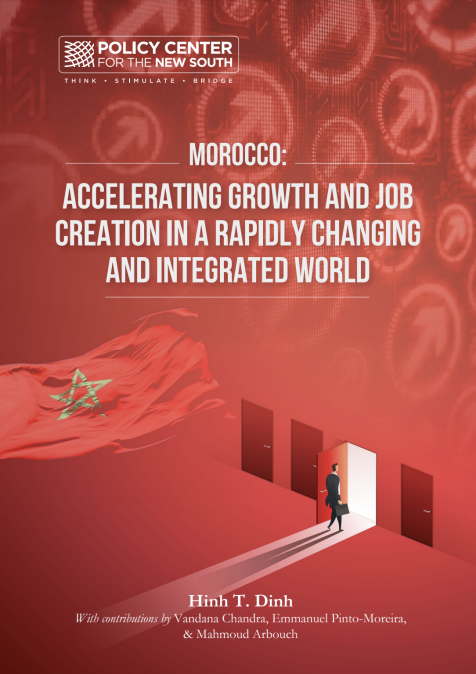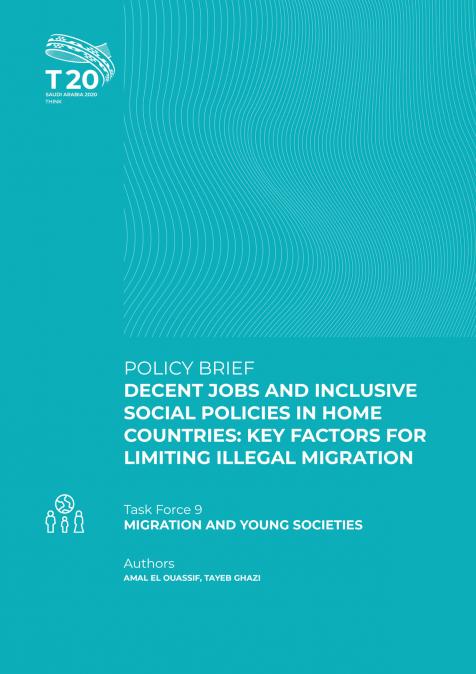Publications /
Opinion
Leonardo Da Vinci’s mechanical knight was a humanoid automaton, designed and possibly constructed by da Vinci around 1495. When a version of the mechanical knight was brought into existence several hundred years later, it could stand, sit, raise its visor, and independently maneuver its arms, operated by a series of pulleys and cables. Today, of course, robots have escaped da Vinci’s fantasies. Today they land on Mars, help nurses treat COVID-19 patients, and slave in car manufacturing and warehouses. Robots were developed to be used whenever a job is considered by humans to be dull, dirty, or dangerous. They have even been made into fearless soldiers, a potentially billion dollar business. They are part of the economy and symbols of technological progress.
The Impact of New Technologies on Employment and the Workforce’, a study by Hamza Saoudi published by the Policy Center for the New South, could be understood as a stern warning of how Africa could miss out on such new technologies: “It is important to recall that developing countries in general and in Africa in particular, have missed the past three industrial revolutions. The first was marked by the emergence of mechanization following the invention of the steam engine and the exploitation of coal. The second was marked by the emergence of new sources of energy: electricity, gas and oil, and the development of the automobile industry. The third was marked by the emergence of new information and communication technologies”. However, insists Mr. Saoudi, “Africa and developing countries should not miss out on this new digital revolution, which offers new opportunities to increase productivity, and new prospects for young people”. A century ago, each new invention—radio, telephone, cars, washing machines, and vacuum cleaners—created hope for a better tomorrow. Technology, confirms Saoudi, has brought about profound structural economic change, creating new jobs and sectors, “while destroying and modifying others, with major consequences for certain categories of the population, especially low-skilled workers”. The researcher, guarded in his prognostics, suggests that the future of work will “certainly depend on how artificial intelligence (AI), robots and automation impact the allocation of tasks to labor and capital. It will also depend on the preparation and measures taken by governments, in particular, for effectively supporting the population during the transition, to ensure the new technologies are inclusive and beneficial to all social categories of society”.
Adjustment Can be Difficult
All industrial countries, Saoudi notes, have experienced more or less the same transitions: first, a massive shift of labor from the agriculture sector to the manufacturing sector, and now from the manufacturing sector to the services sector. However, “developing countries are still lagging behind in this transition, as the agricultural sector continues to play a very important role, employing for example more than 50 percent of the total labor force in sub-Saharan Africa”. The difficulties of a rapid, fundamental change towards a technology-oriented African continent seem obvious. The manufacturing sector, confirms Saoudi, “accounts for only 8% of Africa’s total labor force. Therefore, new technologies are not expected to have a big displacement effect on workers in this sector compared to developed countries”.
Second, there is “the lack of energy infrastructure in Africa, especially low rates of access to the internet and electricity, which hold back the adoption of technologies”. The proportion of the population with access to electricity is only 48% on average in sub-Saharan Africa, and remains very low in several countries, with less than 10% of the total population having access in countries such as Chad and Burundi. Access to the internet in sub-Saharan Africa is very low and represents only 25% of the total population. Saoudi predicts that “Africa will face in the future several shocks, both climatic and technological, which may result in significant labor displacement. In addition, an acceleration in automation in developed countries may also negatively impact developing countries, particularly African countries, by diverting investments from these countries to advanced nations where the prerequisites for automation are already established”. He continues: “This may promote the substitution of labor in developing countries by robots, software, and artificial intelligence that can perform in the future the same task that were performed by cheap labor in African countries”.
Technology in itself, argues the expert, does not necessarily improve the lives of African workers, or the labor force in general. For the author, it is important to underline “that workers generally have initial training and experiences that are very specific to particular jobs and sectors, and given that the process of skill acquisition can be long and requires large investment, the adjustment period can be difficult and can lead to frictional unemployment, at least in the short run, for some categories of low-skilled workers”. In addition, Mr Saoudi advances the argument that as automation allows routine and repetitive tasks to be done, it reduces the demand for these skills and workers, and also leads to lower wages. Therefore, the adjustment and transition period can also be socially costly.
The paper concludes with only muted optimism. Robots will be slow to invade the African continent, 526 years since Leonardo da Vinci’s vision. Investing in human capital and improving the skills of workers, argues Saoudi, are two crucial strategies that will limit the negative impact that technology can have on the workforce, and will also enable workers to take full advantage of the opportunities offered by new technologies. The author does not shy away from a critical/constructive conclusion: the young people of developing nations, particularly in Africa, are not, or are inadequately, prepared. The author insists it is “crucial to rethink completely education systems and the way we teach our young people, and to start now investing in skills that will be complementary to new technologies. Access to quality education and vocational training is extremely important to properly promote the employability, resilience and inclusion of African youth … The current education system is very ill-prepared to prepare young people for an uncertain dynamic environment”.
There are some questions the author does not answer: what is needed to jump start a new awareness? How can governments, already often struggling economically to survive, redirect their policies towards the future, which is threatening to pass, once again, more than just a few African nations? New technologies mean new thinking, bold decisions by governments often more concerned by holding on to power than accepting and planning for revolutionary technological change. Which African nations are daring to embrace the challenges, risks, uncertainties needed to compete and survive in a time of not one, but several digital revolutions? Is there one nation on African soil that symbolizes progress and the fearless acceptance of new technologies?








